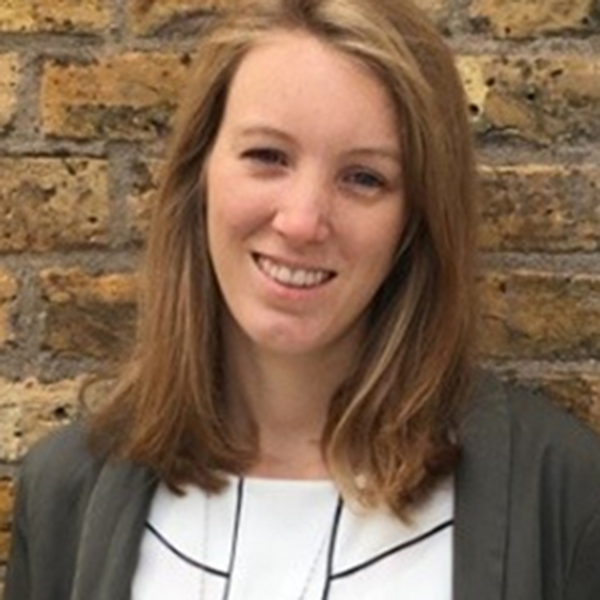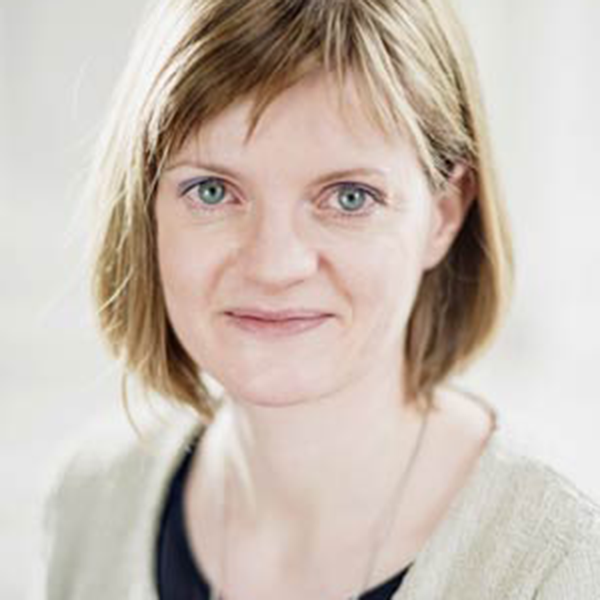Date and Time
September 23, 2024
1:30 pm-4:30 pm
ICT
Location
Bangkok, Thailand
Businesses that operate in and source from the Asia-Pacific region are exposed to modern slavery in their value chains. With emerging global legislation on mandatory human rights due diligence and bans on products made with forced labor (including in the US, Canada, and the EU), multistakeholder collaboration and meaningful partnerships between corporate business, small and medium enterprises (SMEs), and workers is critical to effectively prevent and address the impacts of labor exploitation in business operations and supply chains.
Since 2020, the Global Business Coalition against Human Trafficking (GBCAT)—a BSR-led coalition of businesses committed to combating human trafficking in company operations and supply chains—has worked to build the capacity of corporate suppliers on forced labor. Following on a landscape assessment of existing collaborative efforts and initiatives in Southeast Asia focused on forced labor conducted in 2023, BSR is organizing a workshop series between September and December 2024. The workshops will facilitate multi-stakeholder dialogues to map business efforts to address modern slavery risks in their SME supply chain in Southeast Asia and identify common gaps and priorities to foster effective human rights due diligence efforts, including through more effective data sharing.
The first workshop will take place in Bangkok, and its objectives include:
- Identify common challenges and opportunities for suppliers to identify, prevent, mitigate and address any risk of involvement with forced labor
- Determining priority actions to support suppliers to identify and mitigate forced labor risks
- Fostering transparency, trust, and common objectives beyond traditional means of social auditing
- Understanding the role of SMEs and smaller businesses in the forced labor data ecosystem and identify opportunities for collective action
The target audience for the workshop includes a cross-industry group (e.g. (electronics, technology, food, beverage and agriculture, textile) of corporate suppliers, multinational companies, and selected policymakers. These include companies with or within supply chains in Southeast Asia, suppliers, and buyers, including global multinationals with regional presence and supply chains in the region as well as companies headquartered outside of Southeast Asia.
The workshop will be held under the Chatham House Rule. This event is part of the pre-forum sessions of the UN Responsible Business and Human Rights Forum, Asia-Pacific.
Please note:
To get access to the meeting venue at the United Nations Conference Center in Bangkok, Thailand, participants will also need to register for the main event. This event is in-person only.
The event is co-hosted by BSR/GBCAT and USAID.

GBCAT is a BSR-led coalition of businesses committed to combating human trafficking in company operations and supply chains. It works with civil society, law enforcement, academia, technologists, and survivors to advance and scale the use of technology to prevent, disrupt, and reduce human trafficking through its Tech Against Trafficking workstream.

The U.S. Agency for International Development (USAID) is the world’s premier international development agency and a catalytic actor driving development results. USAID’s work advances U.S. national security and economic prosperity, demonstrates American generosity, and promotes a path to recipient self-reliance and resilience.
Scheduled Speakers
- Jon Amis, Supply Chain Risk Management Senior Consultant, USAID
- Samir Goswami, Deputy Assistant Administrator in the Bureau for Management, USAID
- Claudio Formisano, Global Lead, Human Trafficking and Forced Labor, BSR
- A Launchpad for Action: Key Tech and Human Trafficking Priorities in 2025 / December 19, 2024 / Blog
- From Commitments to Action: A Business Guide to Address Forced Labor Across Value Chains / December 17, 2024 / Insights+
- Building an Effective Supply Chain Data Ecosystem to Prevent Forced Labor / April 24, 2024 / Blog
- Tech Against Trafficking Summit: Leveraging Technology to Eradicate Forced Labor / December 7, 2023 / Blog
- How Will Chinese Companies Shape the Global EV Market? / November 2, 2023 / Blog
- Alice Pease, Manager, Human Rights, BSR
- A Launchpad for Action: Key Tech and Human Trafficking Priorities in 2025 / December 19, 2024 / Blog
- From Commitments to Action: A Business Guide to Address Forced Labor Across Value Chains / December 17, 2024 / Insights+
- Should ‘Modern Slavery Act’ Implementation be Pushed Back? / August 15, 2023 / News
- Scaling Anti-Trafficking Efforts Across Sectors Through Collaboration / July 27, 2023 / Blog
- Canada’s Modern Slavery Legislation: Key Recommendations for Business / May 24, 2023 / Blog
- Roberta Pinamonti, Associate Director, BSR
- Looking Ahead to the Next Decade of Business and Human Rights / February 3, 2021 / Blog
- Supporting Women in the Luxury Supply Chain: A Focus on Italy / December 3, 2019 / Reports
- Challenges and Opportunities for Gender Equality in a European Luxury Supply Chain / December 3, 2019 / Blog
- What the Right to Own Property Means for a Land-Based Sustainable Business / June 19, 2018 / Blog
- Surveying the Human Rights Landscape: How Businesses Are Managing Human Rights in 2018 / January 8, 2018 / Blog

Claudio Formisano
Global Lead, Human Trafficking and Forced Labor, BSR
Paris
Claudio leads BSR’s portfolio on addressing modern slavery, human trafficking, and forced labor. He develops guidance for companies seeking to prevent and mitigate human trafficking and forced labor risks and advances policies to scale impact through BSR’s collaborative initiatives like Tech Against Trafficking, the Global Business Coalition Against Human Trafficking, and Building Responsibly.
He brings 15 years of experience in managing multidisciplinary programs on criminal justice, human rights, and security in multilateral settings. Prior to joining BSR, he worked at the UN Office on Drugs and Crime (UNODC), establishing and leading the Secretariat of the UN Inter-Agency Coordination Group Against Trafficking in Persons (ICAT). As a senior advisor to the Special Representative for Combating Trafficking in Human Beings of the Organization for Security and Cooperation in Europe (OSCE), he oversaw country needs assessments in North America, Europe, Asia, and North Africa.
Claudio holds a MA in Advanced International Studies from the Diplomatic Academy of Vienna, Austria and an Executive Certificate from Harvard JFK School of Government in building and leading diverse organizations. He speaks English, French, and Italian.
Recent Insights From Claudio Formisano

Alice Pease
Manager, Human Rights, BSR
Paris
Alice advises consumer sector members on how to design and implement human rights governance, strategy and due diligence programs, and multi-stakeholder collaboration, with a particular focus on anti-trafficking. She manages the Global Business Coalition against Human Trafficking (GBCAT) and Healthcare and Human Rights Forum collaborative initiatives.
Prior to joining BSR, Alice managed a campaign at the British Parliament on an initiative to strengthen the supply chain transparency requirements of the UK Modern Slavery Act 2015. Previously, she had policy and research roles with a human rights focus at the Argentine Council for International Relations, the European Commission, and the Italian National Research Council. Alice is the co-author of Crime and Global Justice: The Dynamics of International Punishment, published by Polity in 2018.
Alice holds an MA in International Relations: Latin America—Europe from the University of Bologna and an MA in History and Spanish from the University of Edinburgh. She speaks English, French, Italian, and Spanish.
Recent Insights From Alice Pease

Roberta Pinamonti
Associate Director, BSR
Singapore
With more than 14 years of experience in the field of sustainability, Roberta supports companies in translating social and human rights expectations into management practices. In particular, she focuses on supporting companies in the energy and utilities sectors in navigating regulatory trends as well as investor and other stakeholder expectations when it comes to human rights management. She is passionate about renewable energy and leads BSR's work in renewable energy and human rights.
She has experience with human rights due diligence and impact assessments, code of practice and policy development, sustainability strategy and integration, sustainability reporting, and materiality assessments.
Prior to joining BSR, Roberta spent six years with Enel, a multinational electric utilities company, as a CSR specialist. She managed projects across various countries, particularly in Latin America, focusing primarily on integrating sustainability into business operations and developing the company's human rights approach.
Roberta holds a MA in Economics and CSR and a BA in Economics and Social Sciences from the University of Trento in Italy. An Italian native speaker, Roberta also speaks English, Spanish, and French fluently.